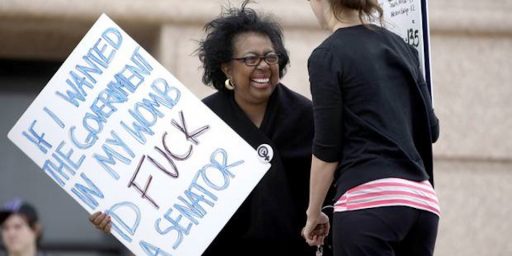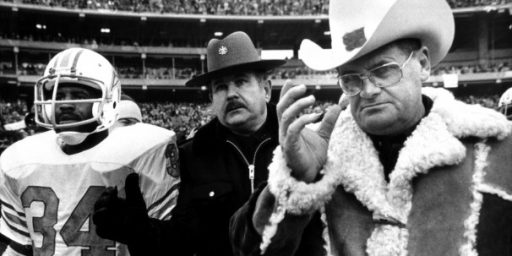Dean Phillips to Focus on White House Bid, Will not Seek Re-election to House
More importantly, comments on challenges to incumbent presidents.

Via the Star-Tribune: Rep. Dean Phillips, running for president, won’t seek re-election to Congress.
Phillips told the Star Tribune in an interview that he intends to “pass the torch” to another Democrat, just as he has asked Biden to do for him or another presidential candidate. Running for president does not prevent Phillips from seeking re-election to his House seat, since Minnesota’s filing deadline for Congress isn’t until early June.
“The fact is, I intend to be running for president well beyond that,” Phillips said, adding that he thinks “it would be irresponsible to continue to string both my constituents along and the other candidates who both have entered the race and who might be interested in entering the race.”
The third-term congressman’s decision leaves Minnesota’s Third Congressional District seat up for grabs. DFL state Sen. Kelly Morrison, who’s also a practicing OB-GYN, and Democratic National Committee member Ron Harris have both announced campaigns for Phillips’ congressional seat. And DFL Minnesota Secretary of State Steve Simon recently said he would consider a run if Phillips left his seat.
I hope he enjoys his “Joe Biden Ran for Re-nomination and All I Got was this Lousy T-shirt” t-shirt.
At any rate, this all reminds me of a post from political scientist Matthew Shugart at Fruits and Votes from earlier this month, Would Democrats be better off replacing Biden?
Basically, in presidential systems and the “presidentialized” parties that result, any election is a referendum on the incumbent–whether he is personally on the ballot or not. It gets even harder for a party when its own standard bearer is under pressure to differentiate himself or herself from the co-partisan incumbent. It gets harder still when the alternative standard bearer would have needed to explain how he or she would be different in order to win the nomination. And that is surely a task that the winner of a primary would have to accomplish, and would also be a question that would come up throughout the general election campaign.
Perhaps the “how different” problem vanishes if there is a “coronation” of an alternative rather than a long competitive process. The more viable candidates, and the longer it takes, logically the more the winner has had to emphasize differences with both the incumbent and the other challengers. I do not see how this could work out well for the party.
[…]
Bottom line, if he is weak enough that the party should replace him, the party is weak enough that it has bigger problems than Biden. And I do not believe that is the case.
In other words, if a party replaces its standard-bearer, it creates a two-front war. War number one is the new nominee v. the opposing party’s nominee, but war number two is the new nominee v. the co-partisan incumbent president.
The only way this could even possibly work is if Biden himself stepped down and could somehow anoint the next standard-bearer, but even then, the questions would have to be addressed as to how the new candidate is the same/different than Biden.
As Shugart notes, the nature of parties in presidential systems is that the party is shaped by the president in ways that place the president as more important than the party as a collective. We have seen this very clearly with Trump. Likewise, a Jeb Bush or Ted Cruz GOP (or a Bernie Sanders Democratic Party) would have been shaped differently than what we are currently seeing.
I would also note Shugart’s concluding paragraph:
And finally there is one more problem, which only makes all the above worse for the “change the nominee” crowd. It is not as if there exists a PARTY with authority to order Biden off the ticket. US parties do not work that way. I suspect most presidentialized parties do not have that ability in practice, although there may be exceptions in some other presidential systems. Seeking reelection is, ultimately, his choice, and other actors can only complicate whether he can pull it off, or go along for the ride. That’s presidentialization!
Back to Phillips, I would call his run “quixotic” but that seems far too poetic a word to describe what he is doing. Perhaps “delusional” is more on target?






Would you put him in the same league as Jill Stein, who’s also going to run for prez in 2024?
@CSK: Only sorta, as both are distractions and trivia. But at least Stein isn’t running for the D nomination.
I suspect this has turned into how Stein makes her living while Phillips is a rich kid who grew up thinking he must be a somebody and is already bored with the House.
@CSK: He is less significant than Stein, insofar as he cannot pull a single general vote.
If Biden had decided not to run again, the responsible course would have been to step down earlier this year and throw the full weight of his remaining credibility behind President Harris’s re-election. He didn’t, and it’s beyond tiresome to keep reading the Democratic equivalents of “maybe Youngkin will get in the race!” stories from bored pundits with a column to file.
I continue to think Phillips is angling for the No Labels nomination, because he’s another American with too much money who thinks he knows more about politics than the career professionals. His fixation on polls is comical.